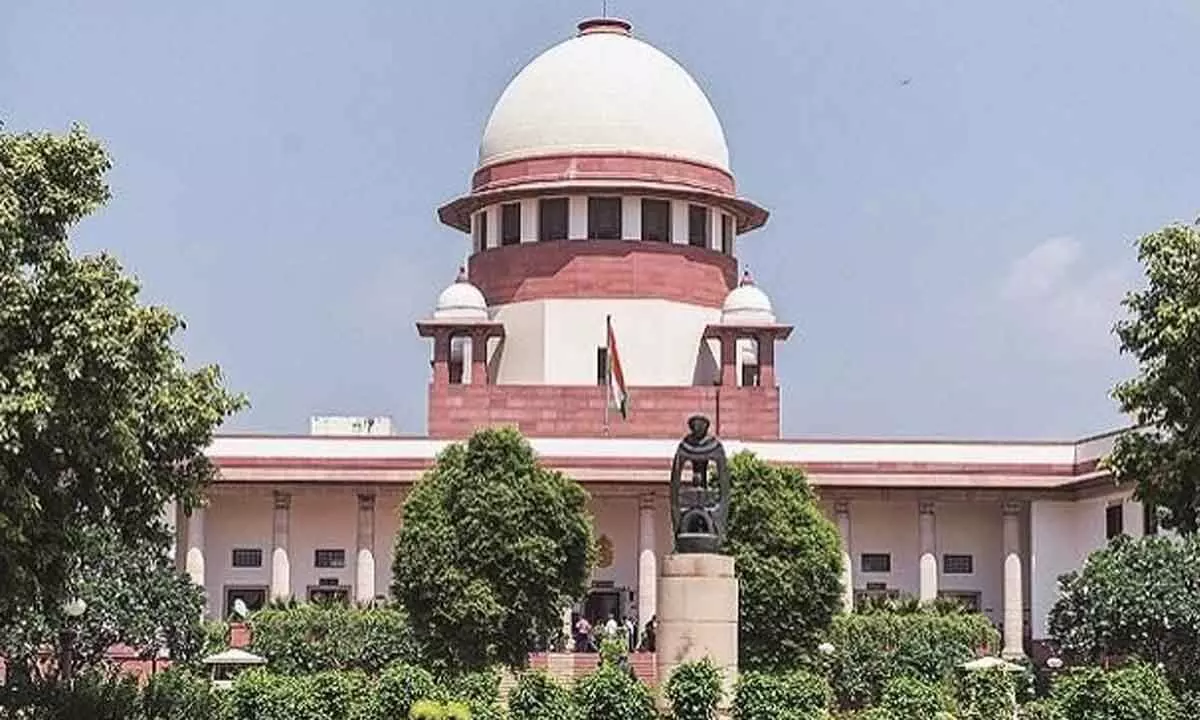'No balancing of right to info, right to privacy': Supreme Court on its 2015 verdict on disclosure of bank info

Supreme Court of India
In a significant development, the Supreme Court on Friday expressed reservation at its 2015 judgment, which mandated banks to disclose list of defaulters and inspection reports under the RTI Act.
New Delhi: In a significant development, the Supreme Court on Friday expressed reservation at its 2015 judgment, which mandated banks to disclose list of defaulters and inspection reports under the RTI Act.
A bench of Justices B.R. Gavai and C.T. Ravikumar said: "Without expressing any final opinion, prima facie, we find that the judgment of this court in the case of Jayantilal N. Mistry (2015) did not take into consideration the aspect of balancing the right to information and the right to privacy."
The top court noted that petitioner banks - HDFC and other banks -- have challenged the action of the RBI, issuing directions to banks to disclose certain information, which, according to them, is not only contrary to the provisions as contained in the RTI Act, the RBI Act and the Banking Regulation Act, 1949, but also adversely affects the right to privacy of such banks and their consumers.
The top court said: "A nine judge Constitution bench of this court in the case of K.S.A Puttaswamy and another (2017) has held that the right to privacy is a fundamental right. No doubt that the right to information is also a fundamental right. In case of such a conflict, the court is required to achieve a sense of balance."
Advocate Prashant Bhushan submitted that the issue which is sought to be raised in the present writ petitions has already been put to rest by a judgment of this court in the case of Jayantilal N. Mistry. It was further submitted that the apex court, in the case of Girish Mittal vs. Parvati V.Sundaram and another, while holding that the RBI has committed contempt of court by exempting disclosure of material that was directed to be given by the apex court, has also held that the RBI was duty bound to furnish all information relating to inspection reports and other materials.
The bench noted that the court has to balance ensuring certainty and finality of a judgment of the court of last resort on one hand and dispensing justice on reconsideration of a judgment on the valid grounds on the other hand. It added this court has observed that though judges of the highest court do their best, yet situations may arise, in the rarest of the rare cases, which would require reconsideration of a final judgment to set right miscarriage of justice complained of.
"It has been held that in such a case it would not only be proper but also obligatory both legally and morally to rectify the error."
This court further held that to prevent abuse of its process and to cure a gross miscarriage of justice, the court may reconsider its judgments in exercise of its inherent powers.
The apex court examined a plea by banks against RBI circulars issued for disclosure of details, under the RTI Act, in accordance with the 2015 judgement.
It noted that the RBI issued such directions in view of its decision in the cases of Jayantilal N Mistry and Girish Mittal, and as such, the petitioners would have no other remedy than to approach this court.
"As observed by Ranganath Misra, J. in the case of A.R. Antulay that, this being the apex court, no litigant has any opportunity of approaching any higher forum to question its decision. The only remedy available to the petitioners would be to approach this court by way of writ petition under Article 32 of the Constitution of India for protection of the fundamental rights of their customers, who are citizens of India," said the top court.
"Though the miscellaneous applications filed by HDFC Bank and others for recall of the judgment and order in the case of Jayantilal N. Mistry were rejected by this court vide order dated 28th April 2021... It is thus clear that this court did not foreclose the right of the petitioners/banks to pursue other remedies available to them in law."
















